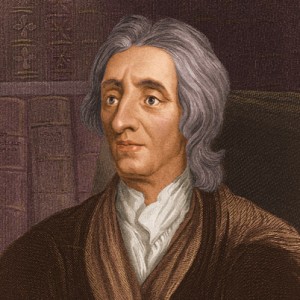
“John Locke… was so successful in catching and expressing the liberal spirit of his age, in his work on Civil Government, that it became the platform of a great political party, and gradually widened out into an influence that operated far beyond the thought or the theory of its adherents; so that, Hallam says, ‘while silently spreading its fibres from its roots over Europe and America, it prepared the way for theories hardly bolder in their announcement, but expressed with more passionate ardor, from which the last and present age have sprung.’” (Richard Frothingham cited in Christian History of the Constitution, p. 2)
Mrs. Mary-Elaine Swanson, author of numerous biographical sketches found in the appendix of The Christian History of the Constitution of the United States of America, was encouraged by Misses Verna Hall and Rosalie Slater of The Foundation for American Christian Education to pursue her interest in John Locke. The three of them knew that Locke had suffered many things at the hands of modern scholars, who in general selectively quoted Locke to support various ideas and philosophies alien to his thinking.
In addition to her many other scholarly endeavors, Mrs. Swanson spent years researching Locke and interacting with modern Lockean scholarship in order to prepare her subject. The reviewer remembers seeing evidence of this work in 1983 at a Pilgrim Institute conference held in Michigan, and at that time she had already been engaged in it for years.
The author writes as an historian to successfully defend Locke against charges of deism and atheism and to show that he was an orthodox Christian, a philosopher of free government, a theologian, a physician, a diplomat, an educator, a founder of the Bank of England, and a monetary reformer.
John Locke is written in a clear, concise, accessible style that maintains a good balance between the informal and the scholarly with extensive documentation. The biography of Locke shows how thoroughly he influenced the England of his day. Locke’s ideas came to be adapted by England in its ”Glorious Revolution”, as it moved from an absolute to a limited monarchy in which the king ruled with the Parliament. Owing to the wide circulation and study of Locke’s two Treatises on Civil Government in America, the Founding Father adopted his philosophy and embodied it, not only in the U. S. Constitution, but in local and state/colonial governments. In France, Locke’s ideas were abandoned with the grim consequences of the French Revolution.
Mrs. Swanson documents for her readers how Locke has been repudiated in the modern American secular state. This has surely contributed to the slide into socialism experienced in the twentieth and twenty-first centuries. A recovery of Locke would surely give rise to a recovery of American constitutionalism.
John Locke admirably defends the assertions made by Frothingham and Hallam in the quotation at the head of this review. I could only wish that I had such a work as this as a resource during the twenty years I taught the United States Constitution to high school students. I recommend it to anyone interested in American Christian History, or anyone who would like to study and teach others the principles and art of Christian self-government.
Review written and provided by Darold Botton, Jr.
Mr. Darold Booton, Jr., served at Christian Heritage Academy in Del City, Oklahoma for 35 years, until his retirement in 2012. His ministry there included both teacher and Assistant Headmaster for Teacher Education. Not only did he teach mathematics, but he has done extensive research in that field. His work, Algebra from the Principle Approach, is published in A Guide to American Christian Education by James Rose. Beginning in 1995, using original documents as the basis for his course, Mr. Booton taught United States Government to high school juniors. He has also been a speaker at numerous Pilgrim Institute conferences and training courses and served on the faculty for the Pilgrim Institute Collegiate Program.